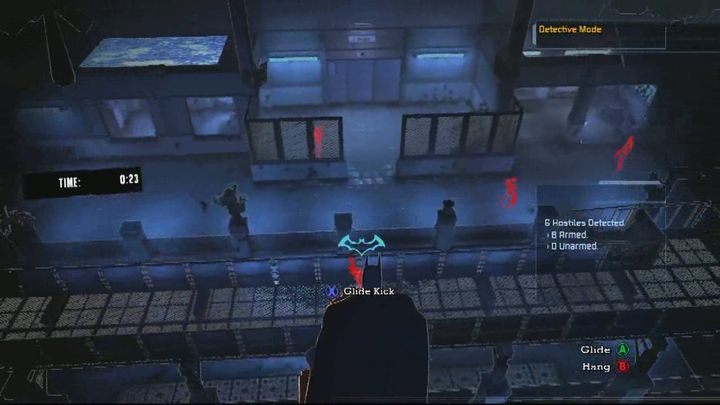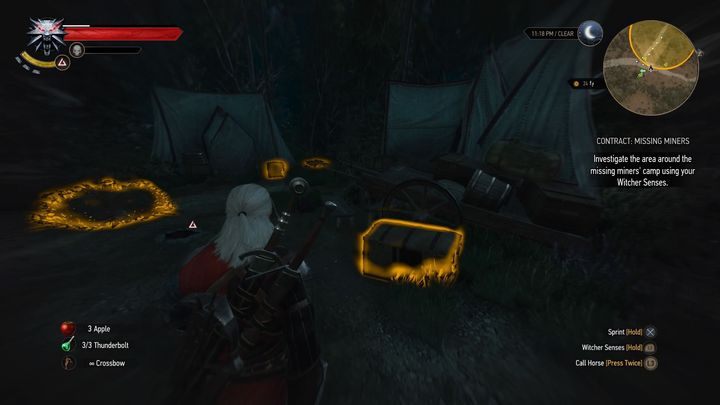The Witcher sens(l)es(s). 95% Chances of Success and I Missed?! Game Mechanics We Hate

- 95% Chances of Success and I Missed?! Game Mechanics We Hate
- Force of entropy – weapon wear
- Level scaling – David becoming Goliath
- Quick-time events
- RNG
- You're overloaded!
- Save the game only once!
- Killstreaks – Massacre of the Innocents
- Your computer is a fraud
- The Witcher sens(l)es(s)
The Witcher sens(l)es(s)
The sixth sense is one of the mechanics that has been exploited more than any of the above in recent times. The Internet says it's derived from the detective mode and, even before that, games where we used various gadgets (such as night vision goggles) to see what was normally invisible.

I would personally trace this mechanic back much earlier, to original, isometric RPGs. In Baldur's Gate 2, after pressing the RMB, we could highlight interactive objects nearby (which was helpful given the isometric perspective). This had no plot justification – it was just meant to make things easier. . Then in Hellfire, the expansion to the first Diablo, there was a spell that allowed doing exactly that.
Today, this mechanics are given a variety of purposes (with varying success). In Arkham games, the special vision mode implemented in Bruce Wayne's costume allowed you to easily assess the weaker and stronger points of a room, see whether the opponent has a weapon, or simply look through the walls. This mode is nowadays used in different forms in most action games, and in numerous RPGs.
Some games try to justify the ability to see more with lore (Batman, The Witcher 3), while others don't bother with that at all. See, while Geralt could indeed see and hear more than a normal person, Joel and Ellie from The Last of Us never seemed to have any such paranormal abilities. And yet, the mechanics was added to the game (by the way, I recommend playing at a higher difficulty level, where this option is disabled – only then does it become a real fight for survival!). Marking opponents with binoculars and seeing them through walls in Far Cry is also hard to explain logically.

The problem, of course, is not the mode itself, but abusing it without proper explanation. While it was ok in Baldur's Gate (like an interface, it was a device separate from the game world), and it perfectly suited Batman (high-tech gadgets and all), in the aforementioned The Last of Us, it was a stretch. The mechanic was also apparent in Horizon Zero Dawn, Rise of the Tomb Raider, Assassin's Creed (Eagle's vision from previous releases was replaced with drone and sonar mode), Shadow of Mordor and even Red Dead Redemption 2. Since it became so universal, we've come to look at it much more judgingly.
So many flaws
You really can discover new deposits of irritation within you once you start naming all the solutions that you didn't like, and which yet have been repeated in subsequent games, or even imitated in other titles. It's also worth noting that each of the mechanics described in this text was conceived with a specific purpose. Parry-and-counter combat used to be a jaw-dropping solution. Game design, however, is a difficult field, in which it's easy to overdo it. And that's what this article was about.
What about you? What game mechanics do you find most irritating?







